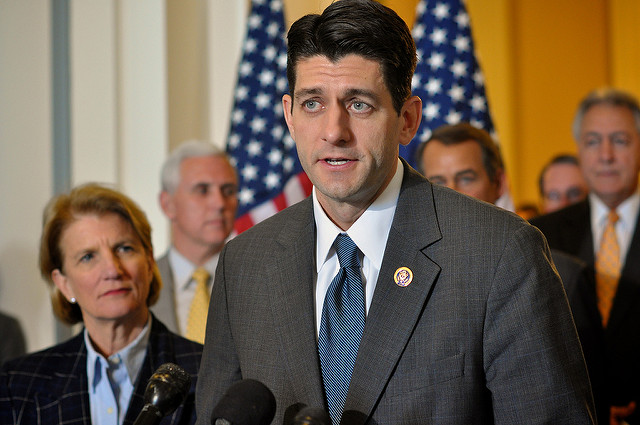
This week Speaker of the House Paul Ryan (R-Wis.) released his regulatory reform agenda, which is the third installment of his “A Better Way” plan. The regulatory reform agenda released outlines a number of policy proposals aimed at reigning in a regulatory burden that has grown exponentially under Obama. While the proposed reforms would have widespread benefits for the economy as a whole, many would prove especially beneficial to energy consumers and the energy sector, both of which have seen costs skyrocket under the Obama regime.
Since taking office, the President has actively worked to expand executive agency control over the economy through increased regulations, specifically as it relates to the energy sector. Over the last eight years U.S. consumers and the economy have been subjected to an avalanche of energy regulations, such as the Clean Power Plan and Methane Rule, which increase the costs of energy.
By growing the regulatory burden, the Obama Administration has increased the amount of time and resources U.S. businesses expend to comply with such regulations. The increased compliance burden trickles down to U.S. families and consumers in the form of higher monthly energy bills, reduced household income, and increased costs of consumer goods.
Speaker Ryan’s regulatory reform agenda looks to reverse this economically disastrous trend by proposing common sense reforms such as: providing for a regulatory budget; requiring regulators to take the cumulative impact of rules into account; and using reproducible and transparent data.
Speaker Ryan points out that Washington’s regulatory bureaucracy rarely knows the financial costs of the regulations it enacts, even with regard to major regulations. In order to fix this issue, Ryan proposes requiring Congress, when it passes new regulatory legislation, to prepare and report estimates of how much a regulation will cost. This would essentially impose a “regulatory budget” on the process, ensuring lawmakers take into account the associated costs of new rules.
In the same vein, the regulatory reform agenda notes that while regulations are enacted separately, often the cumulative effect of such regulations on the economy is overlooked. This issue only compounds as more and more regulations are added each year. For instance, in 2015 the federal government enacted 3,408 new regulations while repealing few. Ryan argues that such regulatory impacts should not be considered in isolation, but the burden on the economy should be considered as a whole when enacting new rules.
It has also been a constant criticism that federal agencies are often not transparent or accountable in reproducing and making available the scientific data used to justify new regulations. As part of the reforms proposed, Congress would require federal agencies adhere to accepted principles of scientific practice during research, and make such data available to the citizens, industries, and organizations that would be impacted by proposed regulations.
Ryan’s regulatory reform agenda also outlines needed reforms such as reducing paperwork, requiring “meaningful” judicial review of rules, and adhering to statutory mandates, among a number of other positive reforms.
The reforms outlined by Speaker Ryan would not only be a boon for U.S. competitiveness as a whole but also would be particularly beneficial to energy consumers and businesses, reducing compliance costs and in turn reducing the price of energy American families and businesses pay each month.
Unlike the existing regulatory climate under Obama, requiring regulators and lawmakers to work within a regulatory budget and take into account cumulative costs would protect businesses from a continuation of a suffocating compliance burden and ensure consumers are not subjected to even more increased energy costs. Additionally, making the regulatory process more transparent would allow for the interests of citizen stakeholders and businesses to have a voice in the process that has been muffled by federal bureaucracy for too long.

